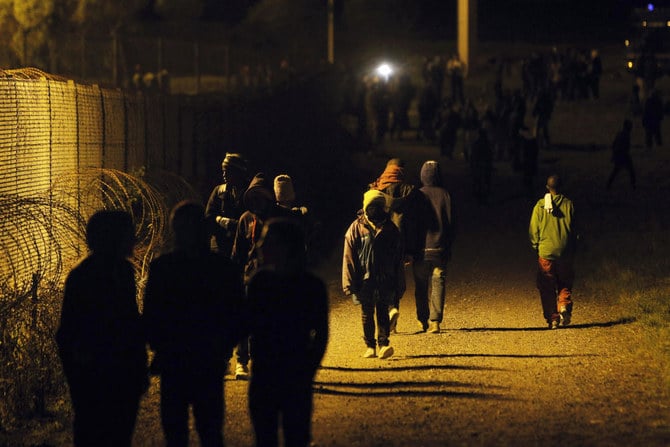BREAKING THE MODEL

by Ralph Berry
46,000 illegal migrants crossed the Channel to England in 2022. Those are the official figures, the ones we are aware of. The Government swears that it will take steps to overcome ‘this open and apparent shame’, and that it will pass laws to break the business model on which the traffickers thrive. This is impossible, and there is no reason to believe that the authorities can do it.
The business model of the traffickers is perfectly sound, and it obeys a law older than Hammurabi. It is the law of supply and demand.
The demand for entry to the UK, by whatever means, is immense and can only grow in the foreseeable future. It is part of the invasion of the First World by the Third World, the overarching story of our time.
The economic aspect is easily expounded, and real figures are available. Before Christmas the traffickers were advertising in France and Belgium cross-channel prices reduced to £3,000, a seasonal sale like those in the retail industry. I consider this price a bargain, and tickets–or tokens–were snapped up. The holders had to wait for six days over December, because of the weather, but they are sure that their time will come. The risks, which the Government says are close to its humane heart, are modest and are acceptable. It is true that four migrants were drowned lately, but the rest of the boatload were picked up by the border patrol; they had set off at night in poor weather, had no adequate means of signalling, and got into trouble around 3 am. The passengers were healthy young men, who think they will never die. The risk-reward calculation is all in their favour; 46,000 were known to have got through this past year, with more to come in the year of grace 2023.
Once ashore, the migrants know that there is virtually no chance of their being deported. Many will wait for their asylum claims to be processed, which means an interminable delay. Many will simply abscond from their detention centre–which could well be 3-4 star hotel–certain of welcome in the arms of the diaspora. They will disappear into ‘streaming London’s central roar’. The economic model goes on fulfilling itself, for the liberated migrants may have debts to the traffickers to pay back, and they will be absorbed into their workforce. There are stout foundations to the migrant force lodged permanently in Britain.
Their public cry is for permission to work, which has seeming validity since a growing mass of the population shows no desire or need to work at all. There is low unemployment nationally. Workers are needed for bar staff, restaurant service, drivers and the like. (The same phenomenon is now seen in Australia.) Crime is a much safer and better-paid occupation. Crime pays, a truth that is extravagantly illustrated in today’s Britain. Burglary goes uninvestigated by the police, shop-lifting is rife, the courts are over-burdened and ‘the law’s delays’ an ever-present reality. (So, increasingly, is ‘the insolence of office’.) The underground statistics of the GDP should reveal that productivity, that favourite talking-point of economists, is enhanced by crime in all its forms.
So ‘breaking the model’ is mere talk, the diversion strategy of the Government. The immediate refutation comes from Albania, a criminal country on a different footing from other migrants, now in membership talks with the European Union. Albania has lowered its crime rate by exporting its criminal class to Britain, where they thrive. One heroic Albanian made the news for being deported six times. He always came back, and now in his seventh visit is being housed in His Majesty’s Prison. The Albanian community in Britain is visibly wealthy, and on a recent national day displayed in London an array of expensive cars. The profits go in part to upgrading the houses of the declining numbers of Albanians who actually live in that country.
Should costs rise, the traffickers will simply pass them on as higher prices. Back home, the eager investors will have to stump up. They will. This Government is in any case committed to a policy of open-door, legal immigration, which can only intensify the problems manifest in the country. But they will swell the numbers and GDP of the population, though not their quality of life. The future is bright for migrants, aspiring and arrived. The indigenes may have reservations.